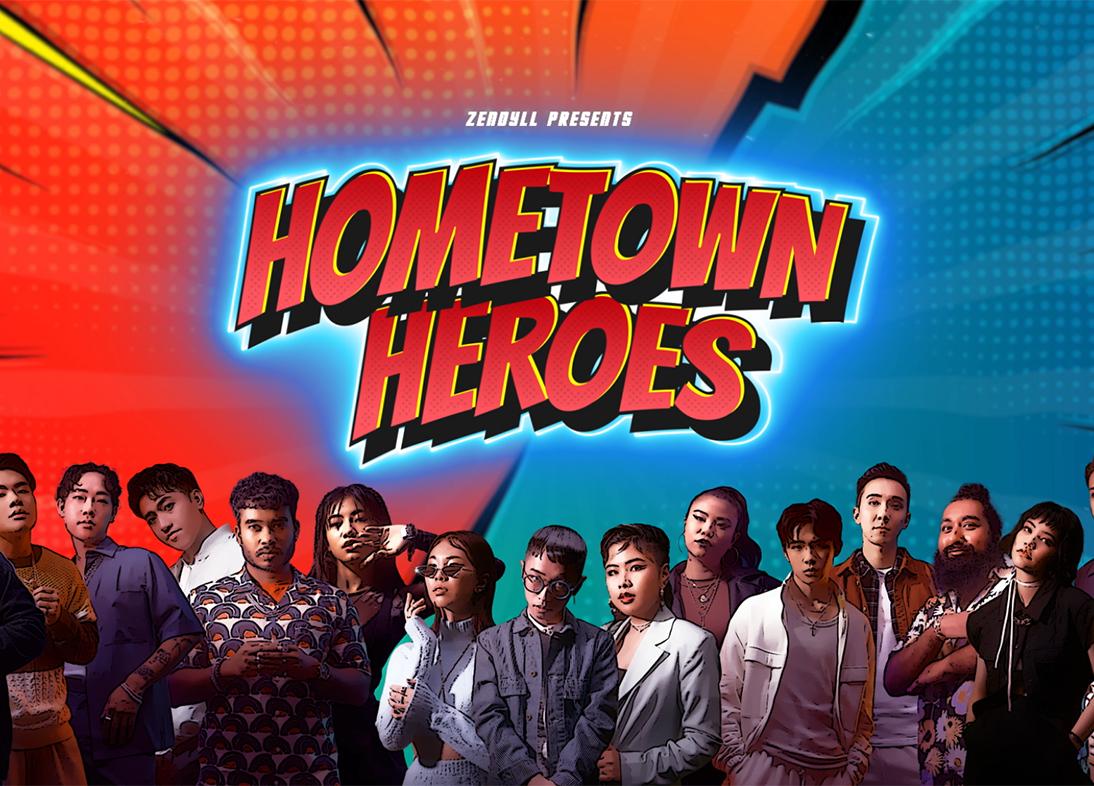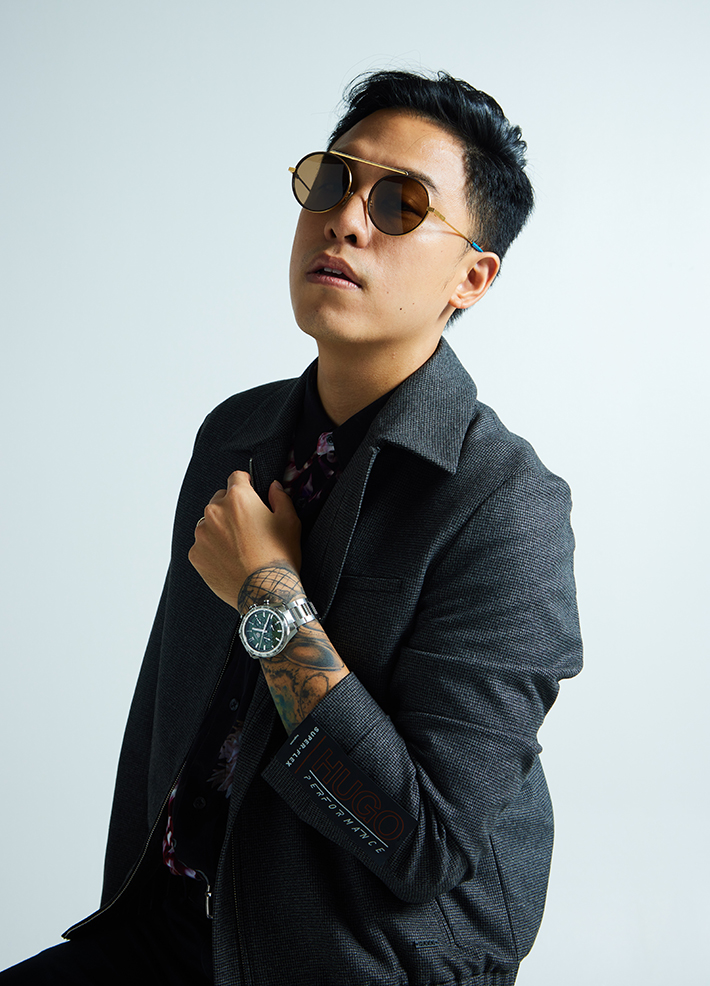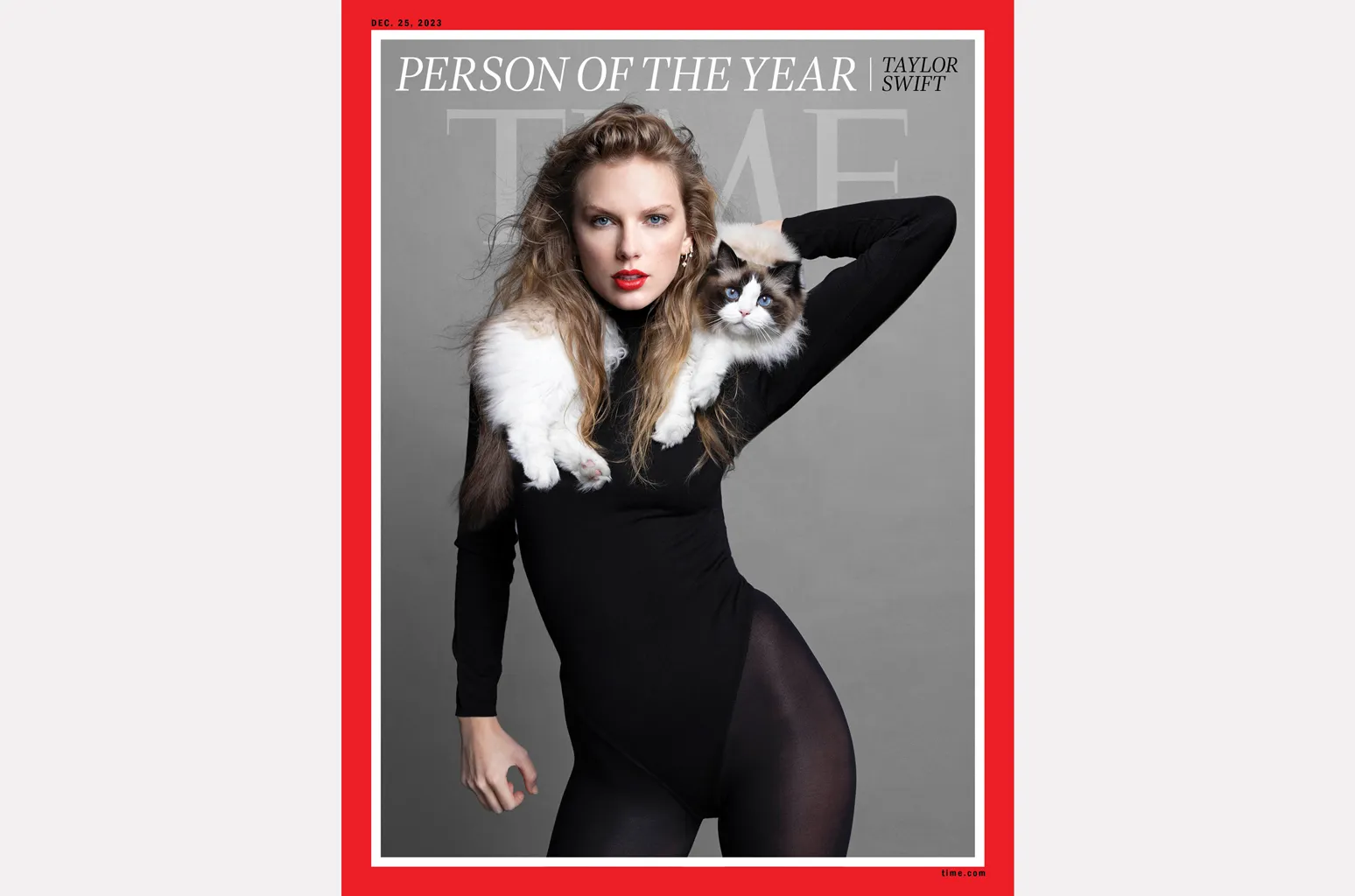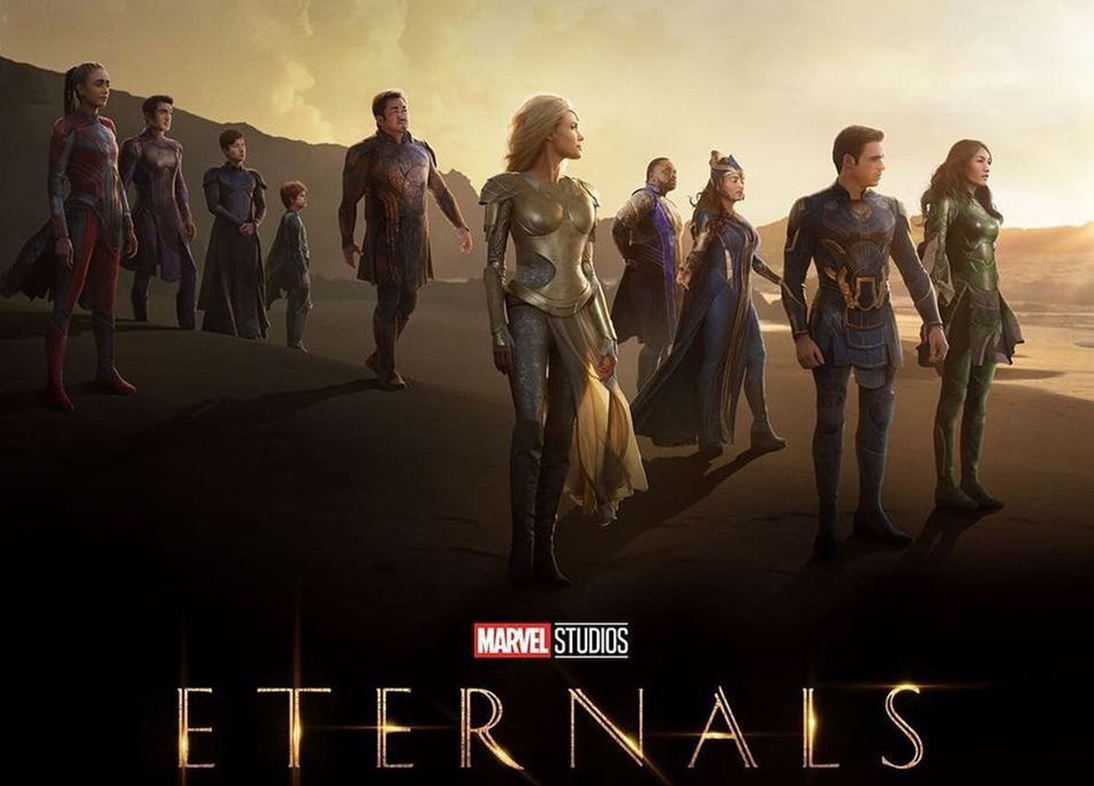Expressive: The creativity and contradictions behind music-making
What does it mean to make it as a musician here? Top local artists speak their truth
- 23.09.2021
- By Emily Heng
RECOMMENDED
In the absence of live performances, Singapore’s music sphere has collectively pivoted to uncharted waters. There’s been streaming parties; virtual festivals; and, as of late, whole reality TV shows developed to showcase the burgeoning industry. For those unaware, we’re talking about Hometown Heroes — Zendyll Music’s latest venture that endeavours to highlight local musical talent.
It’s a simple premise as any: 16 musicians are split into teams of four according to their residential zones, where they’ll be required to participate in a series of challenges to earn points. This culminates into a final task, where each team is required to write and produce a song. Shenanigans and hilarity aside, it is a heartfelt tribute to the flourishing music scene here; an acknowledgement of the grit, tenacity, and passion required by individuals to thrive in a space that has been largely overlooked over the last couple of years.
Suffice to say, such recognition is a long-time coming. We at Buro. Singapore aim to celebrate that through exclusive interviews with four musicians from Hometown Heroes; an exhaustive exploration of what it means to be an artist striving to create during such turbulent times. And so, we opted to shadow Shaykhandbake, Jayefunk, Estelle Fly, and Haven for several hours, peering into the conventional day of someone who, arguably, holds an unconventional career. Read on to get a rundown of our experience.
North: Getting technical with Shaykhandbake at Noivil Studios
The inner workings of Shaykh Akbar’s mind is best-described as organised chaos. This is evidenced by the thousands of files cluttering up his computer’s desktop, and perhaps through the recording space we’re in that harbours an amassed collection of guitars and water bottles. To a clueless outsider (see: the journalist in question), it might seem as if he is one slipped vinyl record away from total anarchy. And yet, there proves to be a method to the madness — a fact of which Shaykh proves by deftly navigating the mass of digital folders to retrieve the right one.
“I’m highly efficient at work, so this balances things out,” Shaykh explains, gesturing at the multitude of projects on his desktop. He’s the type of guy with 16,000 email notifications on his phone at any given time — but he swears it’s mostly just newsletter subscriptions and music equipment push-outs; the latter of which he has to avoid for the sake of his wallet.
“Listen, I go in and ask to be unsubscribed constantly. And then, like, a weeks later, it will come back. No, seriously, it just comes back,” he snorts. “So, here I am, like buying new plugins every couple of months. It just got to a point where I’m like, “Okay, you know what? I’m just not going to bother anymore. I don’t touch the emails entirely.” It’s a strategic move as any, brought about by a keen awareness of his own psyche and working style. Said cognizance translates to his understanding of the music realm, too. The man is a production maestro, skillfully clipping together and fusing beats in a track that he’s working on for an upcoming Maltese musician with other producers on the track from Sweden. And yet, there’s a disconnect between his work and others; a struggle accrued from wearing multiple hats as a self-proclaimed writer, producer, and machine.
“Making my own music is difficult because I work with so many artists, right? And everyone kind of does different things. So, I’ve grown to be like this versatile sort of producer because I do ballads, pop, hip hop… And so, the question is: What kind of music do I want to make?” he philosophises. “It’s hard to pin-point that where I’m making music for other people every day. It’s a matter of deciding what is my true identity as musician.”
It’s a sentiment surely echoed by other young and hungry creatives out there — a line of thought that resonates even with the most seasoned music veterans in the never-ending journey of self-improvement. It is the path that Shaykh is on, undoubtedly, though he certainly is in no hurry to see what comes next.
“When the time comes, I believe I’ll drop my own EP,” he shrugs. “I have the skill set and the connections, I feel. We’ll have to see how it goes. There are plans for me to finally sit down and do it — but hey, that’s as soon as I finish up all the projects that I have currently open for other people, right?” Indeed. And hey, if anything, we trust that his EP will be very much reflect his current vibe: An amalgamation of sheer, unabated talent with a propensity for entropy. Here’s to hoping.
South: Jamming out with Jayefunk at The Parlour Singapore
At first glance, it’s easy to mistake Jaye for a K-Pop star that has descended upon our shores. The shades, ink, and perfectly-parted hair brings to mind the gleaming, spit-shined mien commonly associated with members of BTS, for instance — though he is quick to dispute the image. “I can’t dance,” he points out, laughing at my subtle prod re: his boyband-esque looks. He has, however, worked in the UK, Japan, and Korea as a DJ; a career choice that kicked off at the tender age of 15 which he now dubs “exhausting.”
“I spent way too much time in the dark when I was playing in the club,” he states. “So, when I was creating this space, I came at it with a different mindset. I wanted the sunlight to come through, so I literally busted a hole in the wall above the vocal booth.” The space in question is The Parlour Singpore; a three-level shophouse comprising a photography studio (Freeflow); music production school (Grid Culture); recording studio (The Music Parlour); and bistro (Mirage). The aforementioned hole in the wall is more of a skylight located within The Music Parlour — one that allows for artists to be bathed in sun rays as they work on their craft.
It’s a far-cry from the dimly-lit caves I’ve been visiting over the past few days; a breath of fresh air that I would soon come to associate with Jayefunk. “It took me a year to find this space,” he shares. “It was a challenge to fit all these different businesses under one roof, but I find that every creative space is unique on its own. I like it that way, rather than a franchise with a copy-paste template. For any country or neighbourhood, it has its own vibe. I want to work with that and its energy rather than trying to force an idea onto a place.” It’s clear to see, then, that Jaye is the type of guy who rolls with the punches.
A recent robbery didn’t so much induce despair than it did a viral music video aptly titled Have You Seen this Guy; the recent pandemic merely reinvigorating his love for painting; while the halt on live performances allowed him to re-focus on new ventures, such as adding a new room — with an undisclosed purpose — to The Parlour Singapore. It’s inspiring. It’s growth, in what could be considered a time of despondency. Heck, it’s photosynthesis.
“Exactly,” Jaye laughs, when I voice my theory. “We’re all just walking plants.” And I, for one, am pretty damn excited to see what blooms from his efforts. Perhaps beginning with an unfinished track I had the pleasure of previewing, which already has all the beginnings of a real earworm. I suppose we’ll all just have to wait and see.
East: Chowing down on wanton mee with Estelle Fly
If I had any doubts that Estelle Fly is a quintessentially Singaporean artist, well, it’s safe to say that’s quashed now. The location: Gourmet Wan Tan Noodle. Her get-up: A Spongebob Squarepants T-shirt and flip-flops. Our conversation is periodically interrupted by sips of teh-o and slurps of soft-boiled eggs; the recording peppered with ambient noise in the vein of aunties prompting us for another round of drink orders. It is true Singaporean authenticity at its finest — an apt choice as any, seeing the nature of our discussion.
“I’ve never really spoken about this a lot, but I guess there are people close to me who know about it. Jon, and the people from Zendyll, mostly. I’m not sure how it started, but I think I started feeling this sort of anxiety the more I worked as a solo artist,” Estelle shares. “I grew up performing as a kid. I was a ballerina. It was very much what I wanted to bring to the table when I started. So, it was kind of sad when pressure began to weigh on me, and I just didn’t get the same enjoyment from performing anymore.”
Hometown Heroes serves as the singer’s tentative return to music and performance — a way of getting her feet wet amongst other musicians she’s known in some capacity. Her conundrum is, undoubtedly, a relatable one; an issue faced by just about any burnt-out individual in their field: What happens when your passion has grown to become your source of anxiety?
In Estelle’s case, the disquieting pressure began when she was 17 and recruited to be a member of Japanese idol group, Sea*A. She talks frankly about the pressures she faced working in a foreign country; the grim reality that is being a cog amidst a well-oiled machine notorious for producing slickly-manufactured —albeit, soulless — works.
“It was a different kind of learning curve. Because in Singapore… well, I guess I didn’t know how the music industry in Singapore functioned like, at that time. If you’re with a label in Japan, however, it means they’ll give you everything,” she states. “You don’t do any writing, you don’t do anything at all. You just perform. In a sense, it’s like you’re just a product. All you do is practice.”
She soon returned to Singapore, shaken but still determined to pursue music. Signing on with Zendyll helped, though she admits that it is still a struggle to glean confidence from performing these days. Amidst her playful putdowns of her own abilities and talent, I sense someone grappling to get back to something they love — a long-fought struggle that Estelle will, hopefully, triumph over.
West: A musical lesson with Haven at The Academy of Rock
Admittedly, age is just a number — and yet, it’s rare to see a seventeen-year-old conduct herself with a kind of self-awareness and -assurance that rivals someone twice her age. Local singer-songwriter, Haven, delivers on just that, somehow, whereupon she responds to my rapid-fire enquiries with bubbly enthusiasm. Her musical influences include Melanie Martinez and Billie Eilish; she once wrote and recorded a track in a stairwell at Republic Polytechnic; and yes, a love for High School Musical kicked off her fledging singing-and-dancing career.
That’s not to say she doesn’t experience crippling bouts of self-doubt or depression. The singer remains forthright about her struggles — as she is about the cathartic quality of music. “I really relate to when artists talk about life experiences forming the root of a song,” she elucidates. “I always got it, because I’m not good with communicating how I’m feeling. And the one thing I feel very comfortable doing was singing it, right? Yeah. So me translating my emotions into song was always just so much easier.”
This is evidenced in her latest single, Easy girl, easy boy. The release marks her transition into adulthood; a track highlighting her entrance into a new phase as an individual who isn’t “easy” to deal with. It’s ironic, seeing how there doesn’t seem to be a task too-arduous for Haven — in all her self-possessed composure — to handle. If anything, she’s had practice, seeing how her journey within the music sphere has been a bit of a whirlwind.
She began taking music lessons professionally when she was 14 over at The Academy of Rock. There came a point when she’d been prepared, at one point, to halt her attendance due to financial issues. As fate would have it, however, the owner of AOR saw something in her, and volunteered to fund her lessons. The rest, as they say it, is history.
It’s plain to see that this spirit of banding together; a kampung spirit of sorts that drives her. Haven confirms it, too, when asked about what she hopes fans take away from her latest single. “Can I swear?” she asks, laughing, a moment of youthful exuberance before she returns to the question at hand. “Sh*t is going to get real tough. Things are going to get tougher, but they will get better after that, and that’s what’s worth it,” she points out. “It may sound superficial, but manifest that positivity like it’s coming.” A beat, before she adds, “Once COVID-19 is over, we’re all just going to unleash all the potential we have. Beyond that, just remember: You’re enough, no matter what anyone says. We all are.”
ADVERTISEMENT. CONTINUE READING BELOW




